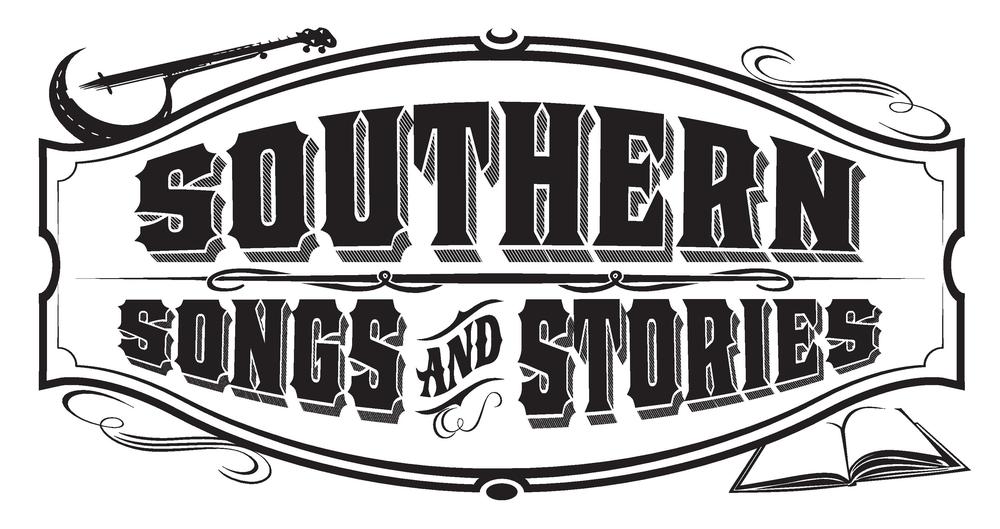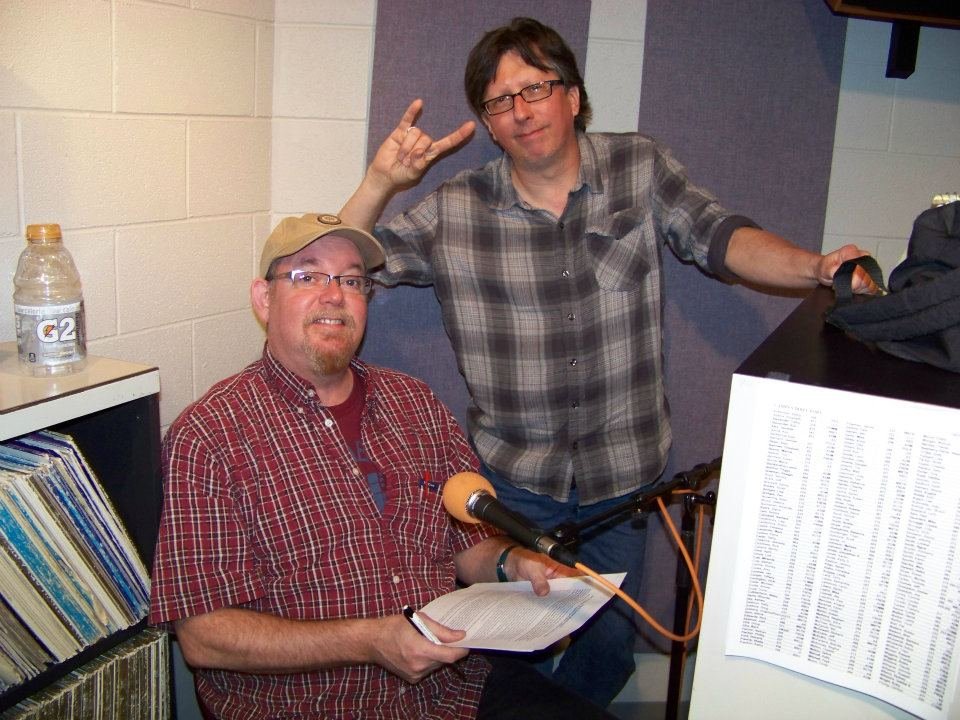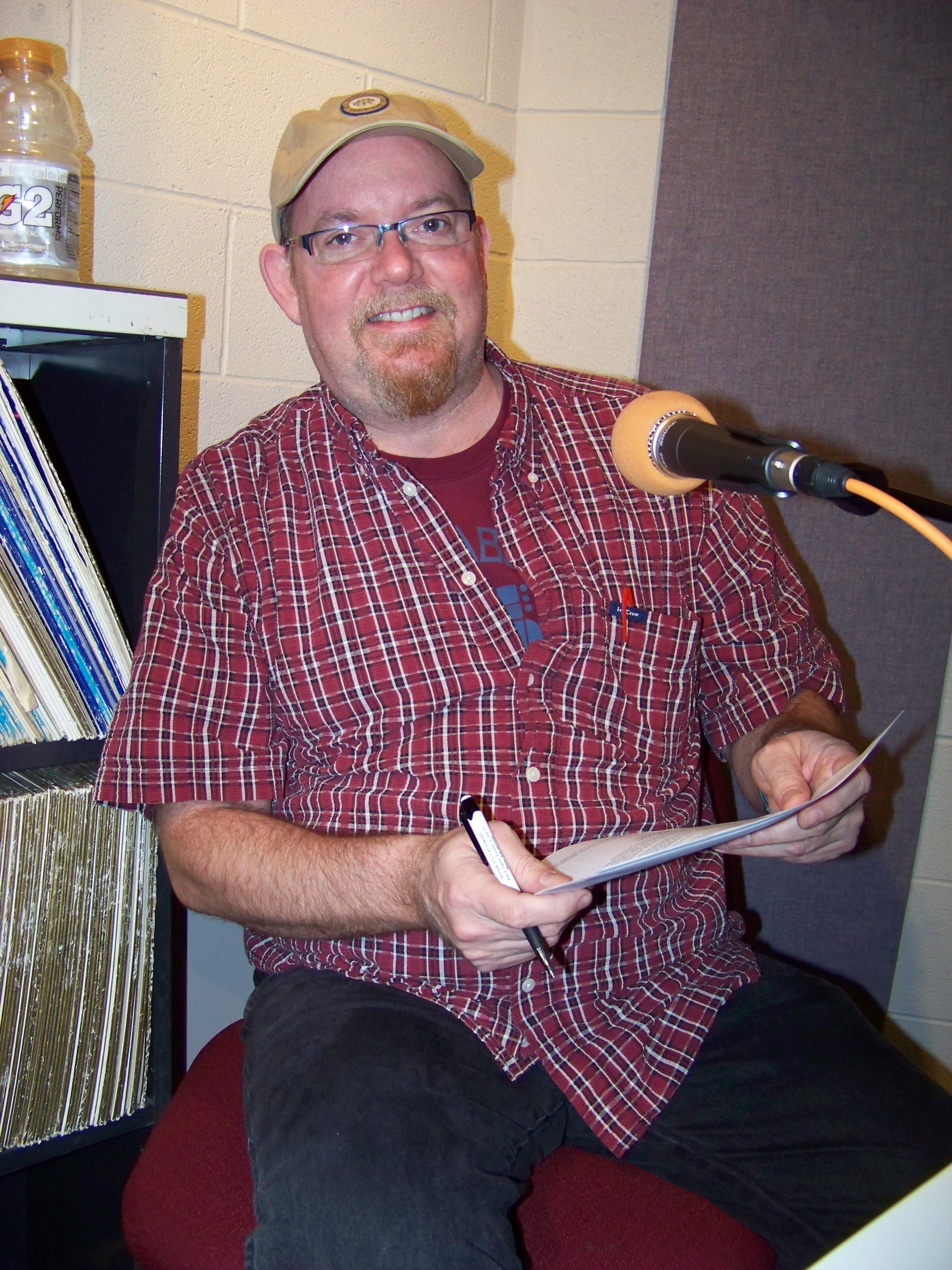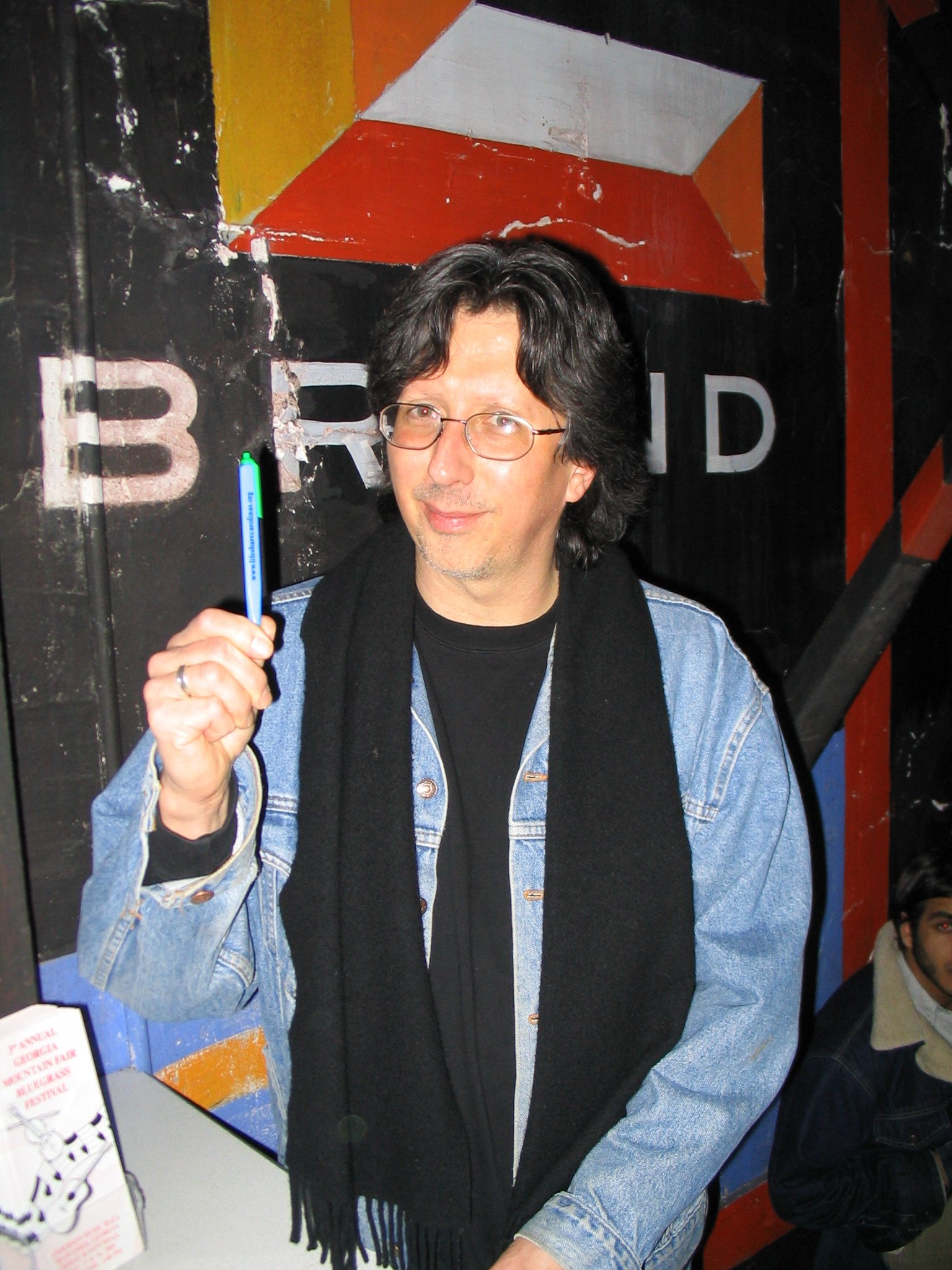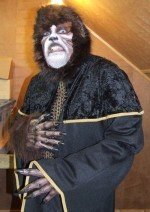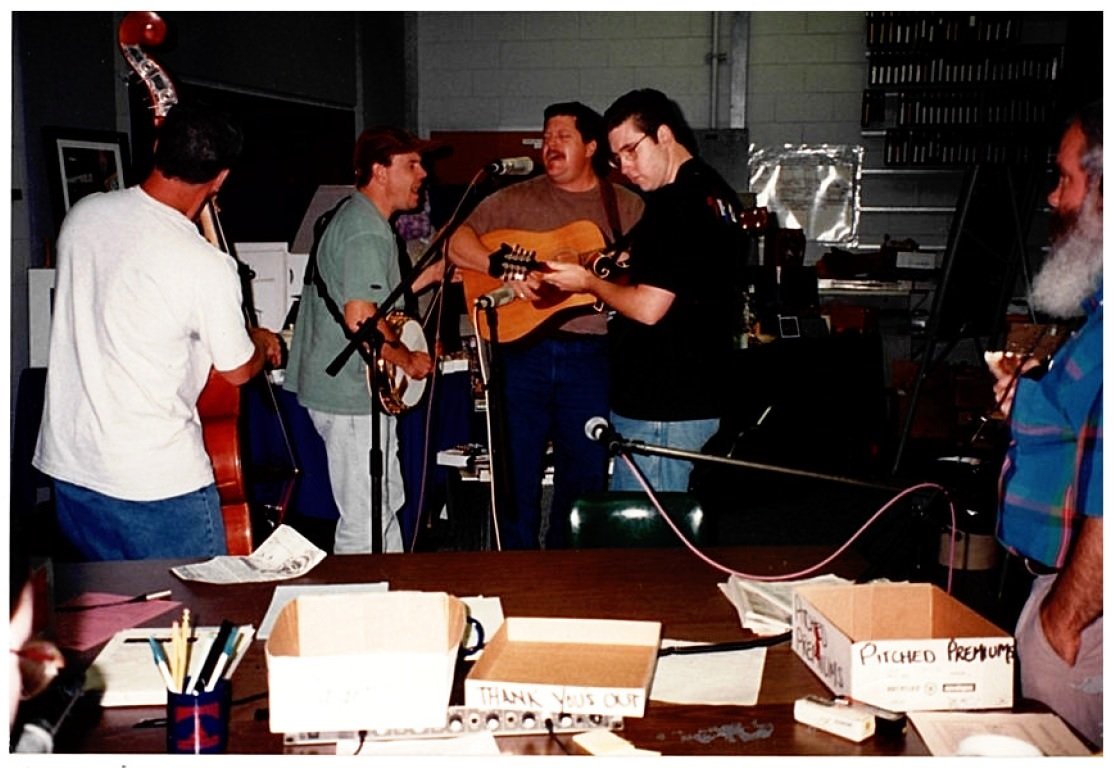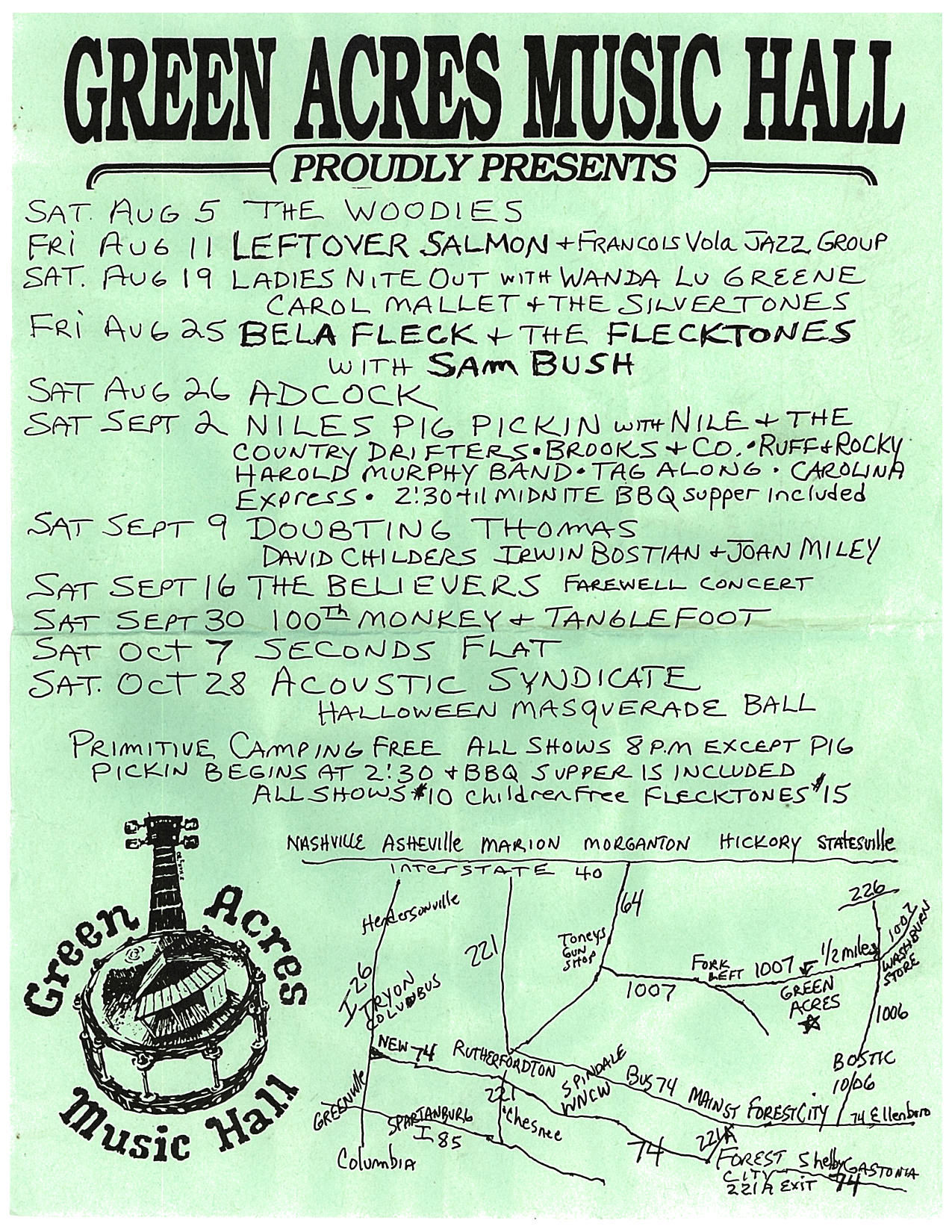The new year arrived and “Auld Lang Syne” bubbled up to the top of playlists all over the land. There are so many versions of this classic, which speaks to the importance of remembering friends and happy times from years past, and it reminded me to pause and reflect on this series, which has featured a great many musical acquaintances and friends (and acquaintances who became friends) over a fairly wide span of time; Southern Songs and Stories began as a video documentary with Aaron Burdett (now in the band Steep Canyon Rangers) in 2015, and transitioned to a podcast in spring of 2017. So much has changed over this time, with both the artists profiled here as well as the podcast itself. In 2018, we partnered with the Osiris Media folks to share the series on their platform, as well as on the internet station Bluegrass Planet Radio, and later with public radio WNCW, where you can hear capsule versions of episodes on air.
Thinking back to those early episodes, it is impossible not to feel the tug of nostalgia for that time -- it was an exciting beginning, full of hope for putting some of the music I loved onto the world stage of an emerging format, and a deep and rich period to experience and take part in the music scene in and around western North Carolina. I thought about David Childers after learning about his new collaboration with Abe Partridge, in a group called The Satan, You're a Liars, on the album Build This House Together. And so, to kick off 2025, here is a listen back to one of our first episodes on a musical hero to Abe Partridge, the Avett Brothers, and many, many more.
(L to R) Joe Kendrick, David Childers and Dolph Ramseur at David’s home after taping their interview 10-17-17
David Childers is a western North Carolina singer songwriter who has been a lawyer, a poet, a man who has always made music, and is also now a visual artist. We’ll get to conversations from legendary producer Don Dixon, who worked with David again on his 2017 record Run Skeleton Run, and talk with his son, longtime band member and collaborator Robert Childers, as well as the head of Ramseur Records and Avett Brothers manager, Dolph Ramseur, plus Avett Brothers member Bob Crawford, and writer, musician and WNCW radio host Carol Rifkin. We’ll also highlight David’s music and the music that inspired him, and delve into many insights into Southern culture along the way.
Songs heard in this episode:
“Jesus Said” by Abe Partridge, from The Satan, You’re a Liars
“Johnny Got A Mohawk” by David Childers & The Mount Holly Hellcats, excerpt
“Radio Moscow” by David Childers, from Run Skeleton Run, excerpt
“Jesus Set Me Free” by David Childers, from Serpents Of Reformation, excerpt
“It’s Bad You Know” by R.L. Burnside, from Come On In, excerpt
“Femme Fatale” by The Velvet Underground, from The Velvet Underground & Nico, excerpt
“Brown Eyed Handsome Man” by Chuck Berry, from After School Session, excerpt
“Belmont Ford” by David Childers, from Run Skeleton Run, excerpt
“Collar and Bell” by David Childers, from Run Skeleton Run, excerpt
“Price I Had To Pay” by David Childers, from Room 23, excerpt
“Little Cindy” by David Childers & The Modern Don Juans , from Burning In Hell, excerpt
Thank you for listening! We hope you can help spread awareness of what we are doing. It is as easy as telling a friend and following this podcast on your platform of choice, so easy! You can find us on Apple here, and YouTube here — hundreds more episodes await you.
From there it takes just a moment to give us a top rating, and where it is an option, a review! It makes a great difference because the more top reviews and ratings we get, the more visible we become to everyone on those platforms, which means that more people just like you connect with artists like David Childers, Abe Partridge, and many more we have profiled that are at your fingertips.
This series is a part of the lineup of both public radio WNCW and Osiris Media, with all of the Osiris shows available here. You can also hear new episodes on Bluegrass Planet Radio here. Thanks also to Jaclyn Anthony for producing the radio adaptations of this series on WNCW, where we worked with Joshua Meng, who wrote and performed our theme songs — you can link to his music here. This is Southern Songs and Stories: the music of the South and the artists who make it. - Joe Kendrick
